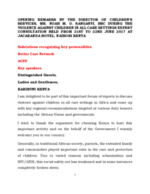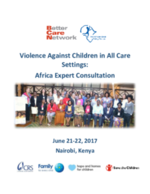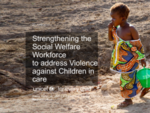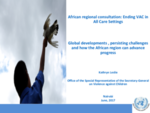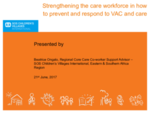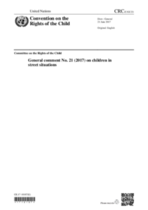Official Opening Remarks by the Director of Children's Services in Kenya at the Africa Expert Consultation on Violence against Children in All Care Settings
This document includes the opening remarks given at the Africa Expert Consultation on Violence against Children (VAC) in All Care Settings by Mr. Noah Sanganyi, the Director of Kenya's Department of Children's Services.

